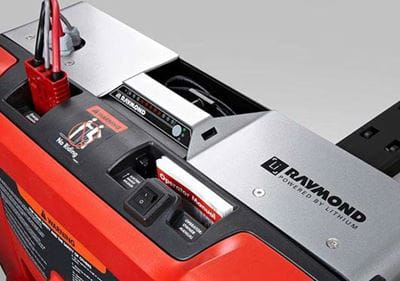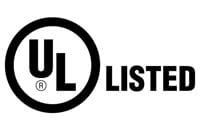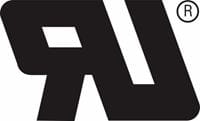Are lithium-ion batteries safe to use in your warehouse? Look at the UL marks.

Although lead-acid remains as the most prevalent battery technology in modern warehouses, lithium-ion batteries are slowly but surely finding their place. Not all lithium-ion units are created equal, however. Get to know your batteries by understanding their UL ratings.
Keeping your warehouse at the front of the technology curve is a never-ending endeavor. Innovation in the material handling space continues year after year, and experienced warehouse operators look for new technologies that can save them time and money, but do it in a reliable and affordable way.
One area of continual improvement is batteries. Although traditional lead-acid batteries are still the primary workhorse in most warehouses and distribution centers, lithium-ion units are starting to find their way into more and more equipment. Not only are they more efficient than lead-acid, they are about one third of the weight, they don’t use battery acid, and they’re well suited for opportunity charging.
Although most of us have used lithium-ion batteries in our personal devices for decades, it wasn’t until fairly recently that they were put to work in warehouses, factories and other heavy equipment environments. With these new industrial applications, battery safety is of the utmost importance.
Not all lithium-ion are manufactured to the same standards. Different materials, chemistry, manufacturing processes and testing procedures can make battery safety and reliability highly variable. Fortunately, Underwriters Laboratories (UL) has basic standards that warehouse operators can turn to when evaluating battery manufacturers.
What is UL certification?
UL is an independent third party testing facility that is recognized by OSHA as a Nationally Recognized Testing Laboratory. They evaluate whether products are compliant with safety standards through rigorous testing procedures. Products that are designated by UL as compliant can use the UL mark on their labeling to show that they meet modern safety standards.
“UL Listed” vs “UL Recognized”
There are several different UL designations. The most commonly used are “UL Listed” and “UL Recognized”. When evaluating lithium-ion batteries, the most important factor is whether the battery has one of these UL marks, but there are also important distinctions between these two ratings.

“UL Listed” is used for standalone products or complete components that are appropriate for factory installation. For example, a complete lithium-ion battery pack that has electronic circuit protection and a full enclosure could be considered for this designation. The “UL Listed” mark means that a product meets nationally recognized safety standards based on UL’s testing requirements. actor is whether the battery has one of these UL marks, but there are also important distinctions between these two ratings.
“UL Recognized” is often used for individual components designed to be factory installed on another standalone product bearing a “UL Listed” mark, or components that have certain restrictions on their performance. For example, a lithium-ion battery pack that does not have a full enclosure, but will include an enclosure as part of an overall “UL Listed” product design may be designated as “UL Recognized”.
Why Does It Matter?Although the “UL Recognized” should give you confidence that appropriate components were used in your equipment, it’s equally important that the overall product or system is “UL Listed” and fully compliant with safety standards.

Why Does It Matter?
Although lithium-ion batteries are in many ways safer than lead acid (no acid spills, no explosive off-gassing, lighter weight, etc), they hold a tremendous amount of energy relative to their size. Manufacturing defects in these batteries can make them deadly, so it’s important to only use batteries that are fully compliant with U.S. safety standards.
Find Out More
For advice on purchasing lithium-ion batteries for your warehouse or distribution center equipment, contact your local Raymond West representative today at (562) 944-8067.

